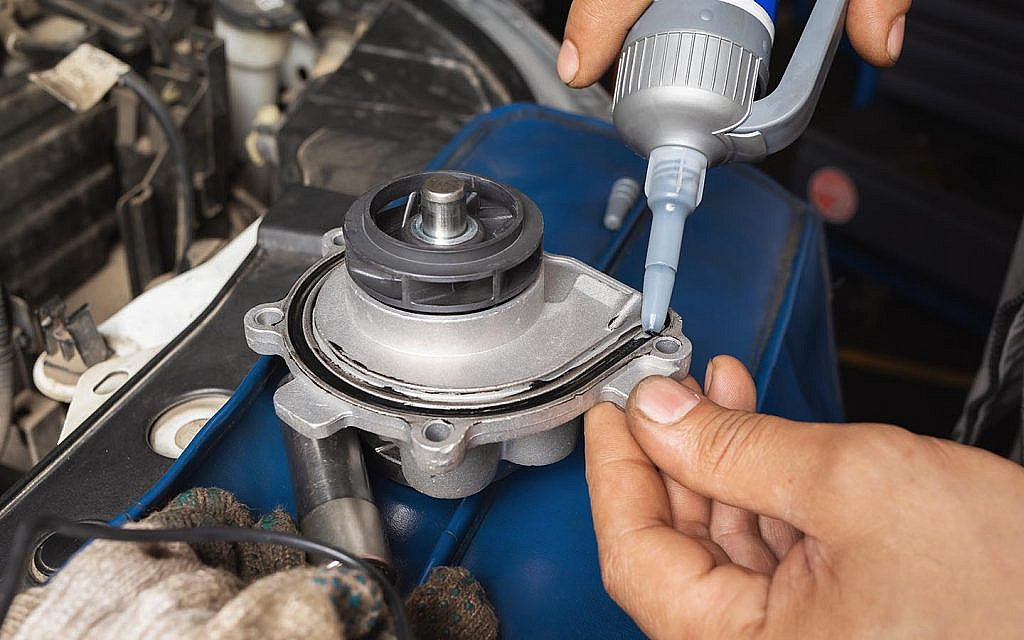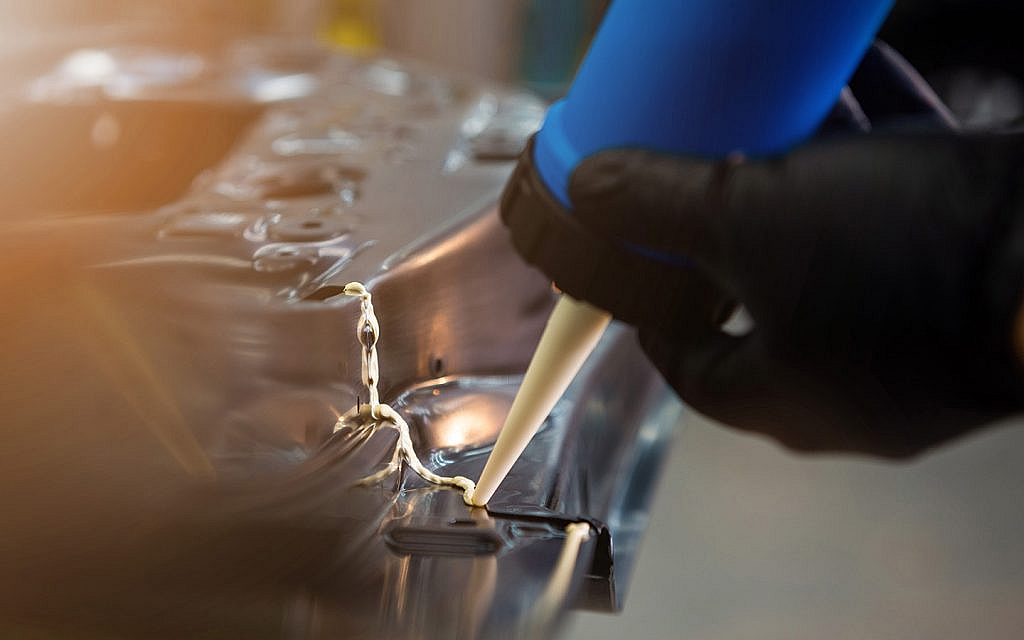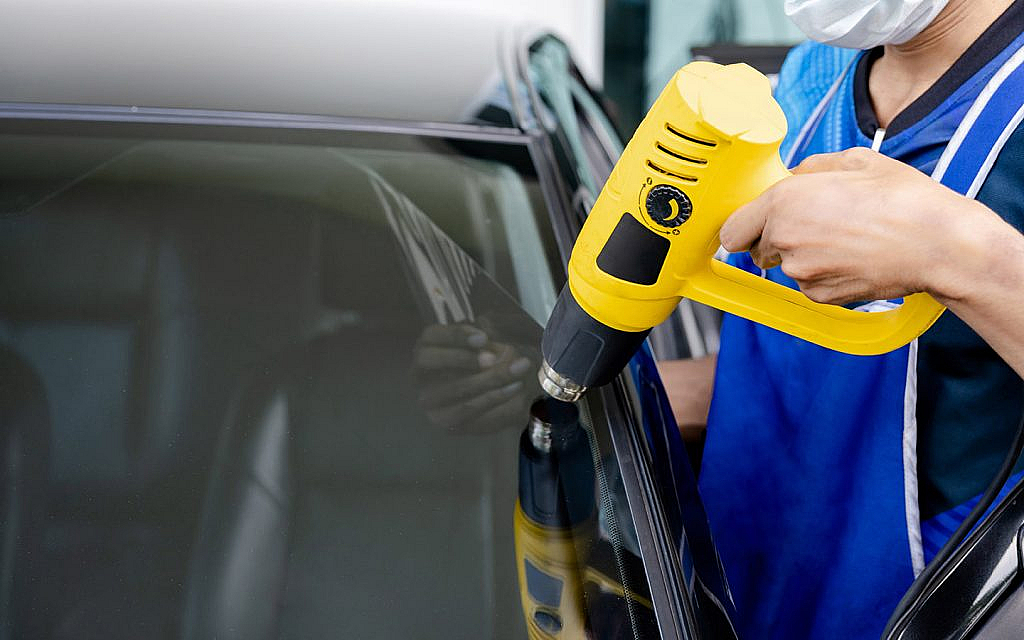Learn the Role of Vehicle Adhesives and Sealants in the Automotive Industry

- Importance
- Adhesive Types
- Sealant Types
- FAQs
In automotive care, vehicle adhesives and sealants are integral to upholding a car’s integrity and durability. From sealing leaks and preventing corrosion to bonding body panels, these products ensure structural repair, vehicle safety and longevity. They enable easy repairs without the need to replace the affected car part.
Moving forward, here is the importance of automotive adhesives and sealants, their types and applications.
Automotive Adhesives and Sealants – Why Are They Important?
Vehicle adhesives and sealants are crucial components in ensuring the structural integrity, safety and performance of automobiles. They play a vital role in bonding various car components, such as body panels and elements of a car chassis. This bonding enhances the overall rigidity of the vehicle, improving its ability to withstand impacts and ensuring passenger safety in collisions.
Additionally, adhesive and sealant solutions for vehicles contribute to performance enhancement by reducing weight and improving car aerodynamics. They act as barriers against corrosion, protecting critical components from moisture and environmental contaminants. Moreover, these materials aid in the noise, vibration and harshness (NVH) technology within the car cabin, ensuring a quiet and comfortable driving experience.
Let’s now learn the different adhesives and sealants used in the automotive industry.
Types of Automotive Adhesives
One can find several types of automotive adhesives that serve different purposes in car repairs and maintenance. As automotive technology advances, the adhesives used in cars are also evolving to better maintain the car’s structural integrity.
Here are the most common types of vehicle adhesives and their uses.
EPOXY ADHESIVES

Epoxy adhesive is an important element of automotive construction and repairs, offering strength and durability for bonding vehicle components. Formulated from epoxy resin and a hardening agent, these adhesives adhere to various substrates in cars, including metals, plastics and composites.
Epoxy adhesives are employed in car body assembly, securely bonding body panels, chassis components and structural elements. Additionally, they are used in repairing automotive parts such as car spoilers and bumpers.
POLYURETHANE ADHESIVES
Polyurethane adhesives offer resilience against environmental factors. They can easily withstand temperature fluctuations and are excellent at sealing and bonding critical car components. Whether it’s securing body panels, attaching trim elements or sealing seams, polyurethane adhesives ensure the durability of vehicles on the road.
STRUCTURAL ADHESIVES
Structural adhesives are key components in car manufacturing. They help in the manufacturing of a car assembly, such as joining body panels, connecting chassis components, installing door panels, mounting windshields and bonding interior parts.
These high-performance vehicle adhesives add to the safety of vehicles, ensuring they withstand stresses and strains encountered on the road. Plus, structural adhesives help reduce the overall weight of vehicles, which can lead to improved fuel efficiency and handling.

CYANOACRYLATE ADHESIVES (SUPER GLUE)
Cyanoacrylate adhesives, commonly known as superglue, are used in automotive repairs for their strong bonding properties. They usually serve as quick fixes for minor car repairs, such as securing loose trim pieces or attaching interior components. Besides, they form rapid and durable bonds that help in addressing minor issues on the go.
ACRYLIC ADHESIVES
Among types of automotive adhesives, acrylics are gaining popularity. They provide weather-resistant seals, used to bond exterior body panels such as car fenders, emblems, windshields and windows. Inside cars, they bond interior trim components and create seals around doors and windows to prevent leaks and reduce noise.
Now that we have learned the different types of automotive adhesives, let’s review the use of various sealants.
Different Sealants in the Automotive Industry
The automotive industry makes use of different types of sealants to address specific sealing requirements. Whether it is automotive weatherstripping or a watertight seal around a windshield, sealants serve many essential functions.
Let’s review the most common sealants in cars.
Polyurethane Sealants
Polyurethane sealants are used for a range of automotive applications due to their high adhesion and durability. In car construction, they seal joints effectively and provide reliable bonding for body panels. Their applications also extend to windshield installation, creating a watertight seal.

Butyl Rubber Sealants
These sealants provide excellent water resistance and adhesion to metal surfaces. It also makes them ideal for sealing seams and joints in automotive bodies and underbody protection.
Acrylic Sealants
Fast-curing and paintable, acrylic sealants provide strong adhesion to various car surfaces. They are frequently used for sealing paints, interior trims, taillights and car windshields, offering protection against moisture and weathering. However, acrylic sealants are less flexible compared to polyurethane alternatives and can shrink over time.
Silicone Sealants
Silicone sealants are the go-to choice in the automotive industry due to their versatility, flexibility and heat resistance. They offer strong adhesion to an array of surfaces including metal, glass, plastic and rubber.

Silicone sealants are usually employed in weatherproofing, creating reliable gaskets and sealing car engine components. Moreover, they are available in different colours and textures, allowing for customisation in car assembly and repair.
FAQs
What is the use of vehicle adhesives and sealants?
Vehicle adhesives and sealants are used to bond, seal and protect various components in automobiles. Plus, they offer durability against environmental factors like moisture and vibrations.
What are the different types of automotive adhesives?
You can find many types of automotive adhesives such as acrylic, structural and epoxy that serve different purposes in car manufacturing and repairs.
What is the use of adhesive in paint?
Adhesives in car paints bind pigment particles to surfaces for uniform coverage and adhesion. They also improve paint durability and resistance to peeling or flaking, building up the finish quality and longevity.
In short, many vehicle adhesives and sealants serve a multitude of functions that contribute significantly to a car’s functionality and safety. From sealing leaks to installing different parts, these elements help in different automotive applications. Besides, if you are facing frequent deterioration of your vehicle, it’s time for a change. Go through these used cars for sale in the UAE to have a pick.
For more on different automotive repairs and solutions, keep reading dubizzle’s cars blog.